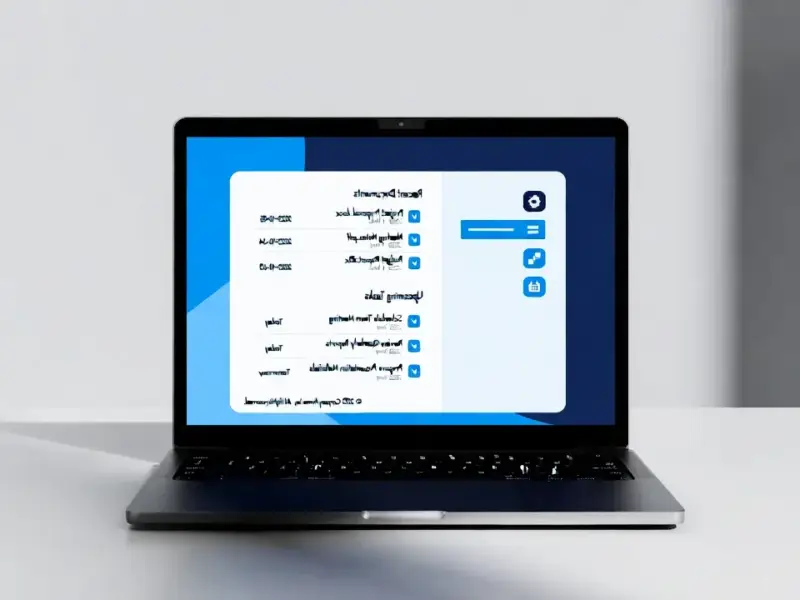According to CRN, Zscaler announced Monday it has acquired AI security startup SPLX to expand its zero-trust security platform for protecting generative AI and agentic adoption. The acquisition brings capabilities in AI asset discovery, automated red teaming, and governance, though financial terms for the 2023-founded startup were not disclosed. This marks Zscaler’s second acquisition of 2025 following its $675 million purchase of Red Canary in August. Zscaler Founder and CEO Jay Chaudhry stated that integrating SPLX technologies with Zscaler’s Zero Trust Exchange will enable the company to “secure the entire AI lifecycle on one platform,” having previously identified AI security as the “third big area” for the company alongside zero-trust security and security operations. This strategic move signals a fundamental shift in how enterprises will approach AI security.
The Critical AI Security Gap Enterprises Can’t Ignore
Zscaler’s acquisition addresses a rapidly expanding attack surface that most enterprises are dangerously unprepared to handle. As organizations rush to deploy generative AI applications and autonomous agents, they’re creating new vulnerabilities that traditional security frameworks simply can’t address. The integration of SPLX’s automated red teaming capabilities is particularly significant—this technology allows enterprises to continuously test their AI systems against sophisticated attacks without requiring specialized security expertise. For security teams already stretched thin, this automation could mean the difference between catching vulnerabilities before exploitation and discovering breaches after significant damage occurs.
Who Wins and Loses in the AI Security Consolidation
This acquisition creates clear winners and losers across the cybersecurity landscape. Enterprise security teams stand to benefit significantly from having integrated AI security capabilities within their existing zero-trust framework, eliminating the complexity of managing multiple point solutions. However, smaller AI security startups now face increased pressure to either demonstrate unique value propositions or position themselves as acquisition targets. The timing is particularly challenging for venture-backed companies in this space, as Zscaler’s move signals that major platform players are rapidly absorbing the most critical AI security capabilities. For enterprises, the consolidation means fewer vendors to manage but potentially less innovation as competition decreases.
The Agentic Future Demands New Security Paradigms
Chaudhry’s emphasis on extending security to “agents” rather than just users reveals where the real battle for AI security will be fought. Autonomous AI agents operate fundamentally differently than human users—they make decisions at machine speed, access data across multiple systems, and can create cascading failures if compromised. Traditional user-focused security models break down when applied to these autonomous systems. The SPLX acquisition positions Zscaler to build security specifically designed for this agentic reality, where governance isn’t just about controlling access but about ensuring responsible AI behavior across complex workflows. This represents a fundamental evolution from securing human mistakes to preventing AI system failures.
The Hidden Integration Challenges Ahead
While the strategic vision is clear, the practical integration of SPLX’s technology into Zscaler’s platform presents significant challenges. AI security requires deep understanding of model behavior, training data integrity, and prompt injection vulnerabilities—areas that extend beyond Zscaler’s traditional network security expertise. The company must navigate cultural integration of a startup team while maintaining the rapid innovation pace needed in the fast-moving AI security space. Additionally, enterprises adopting these integrated capabilities will face their own implementation hurdles, including retraining security teams, updating governance policies, and potentially restructuring security operations to effectively leverage the new AI-focused protections.
Broader Market Implications and Future Moves
Zscaler’s aggressive acquisition strategy—$675 million for Red Canary followed by the SPLX purchase—signals that AI security is becoming a battleground for cybersecurity dominance. Competitors like Palo Alto Networks, CrowdStrike, and Microsoft will likely respond with their own acquisitions or accelerated internal development. The consolidation wave we’re witnessing suggests that standalone AI security companies may struggle to compete against integrated platforms that can offer comprehensive protection across traditional and AI-specific threats. For enterprise buyers, this means evaluating not just current capabilities but also the acquisition strategy and platform vision of their security vendors, as the ability to adapt to emerging AI threats becomes a critical differentiator.




